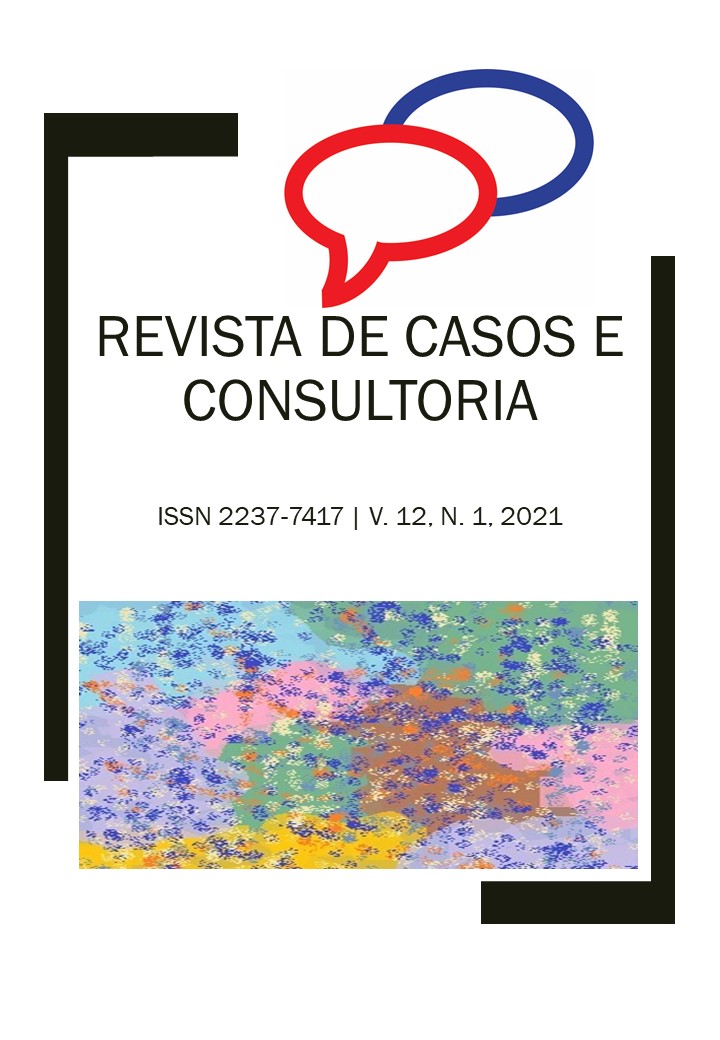Effects of Ubiquinone (Coenzyme Q10) in patients with breast cancer: a systematic review
Keywords:
Ubiquinone; Antioxidants; Breast Neoplasms.Abstract
The study aimed to identify the effects of Ubiquinone when used by a patient with breast cancer, evaluating its mechanisms of action and the patient's prognosis when making its use. A survey of a study published between the years 2007 and 2020 was carried out in the databases PubMed, MedLine and Virtual Health Library, using the following keywords “Ubiquinona” OR “Coenzyme Q” AND “Breast cancer” AND “Benefits”. Incomplete articles, duplicate titles and those that did not meet the topic discussed were not included in this review. Nine articles were selected through systematic and thorough selection, eliminating articles through exclusion based on descriptors, type of study, time frame, approach to the topic, unavailability of full text, reviews and repeated articles. The greatest amount of results was found in the Pubmed database with 66.67% followed by the VHL with 22.22% and MedLine with 11.11% that focused on survival, chemical impacts on blood and changes in levels of angiogenic factors and biomarkers for tumors in patients using the enzyme. Coenzyme Q10 has unquestionable benefits in people with breast cancer. It is important to note that the articles cited other antioxidants supporting the beneficial theory of multidisciplinary treatment. However, it is essential to develop more scientific productions on Ubiquinone in order to better understand its effects, mainly in isolation.
Downloads
References
ABDI, Sheyda et al. Coenzyme Q10 in association with metabolism-related AMPK/PFKFB3 and angiogenic VEGF/VEGFR2 genes in breast cancer patients. Molecular Biology Reports, vol. 47, no. 4, p. 2459–2473, 2020.
ALKHOLY, Usama et al. Estado antioxidante da coenzima Q10 e da vitamina E em crianças com diabetes tipo 1. J. Pediatr. (Rio J.), Porto Alegre , v. 95, n. 2, p. 224-230, Apr. 2019 .
ALVARENGA, Leonardo. Os efeitos da suplementação de coenzima q10 na terapêutica da insuficiência cardíaca: uma revisão bibliográfica. Trabalho de Conclusão de Curso (Curso de nutrição), Centro Universitário de Brasília – UniCEUB, Brasília, p. 5, 2020.
BJORKLUND, Geir. The Adjuvant Nutritional Intervention in Cancer (ANICA) Trial. Nutrition and Cancer, vol. 67, no. 8, p. 1357–1360, 2015.
CORDERO, Mario Cordero. et al. Can Coenzyme Q10 Improve Clinical and Molecular Parameters in Fibromyalgia? Antioxidants & redox signaling, v. 0, p. 1356 – 1361, 2013.
DE FREITAS, Fabiana Barreiro Silva. Efeito da coenzima q10 nos danos oxidativos induzidos pela l-tiroxina no músculo sóleo de ratos. Revista Brasileira de Medicina do Esporte, vol. 21, no. 2, p. 84–88, 2015.
EL-ATTAR, Eman et al. Assessment of Serum CoQ10 Levels and other Antioxidant Markers in Breast Cancer. Asian Pacific journal of cancer prevention?: APJCP, vol. 21, no. 2, p. 465–471, 2020.
HERTZ, N & LISTER, R. E. Improved survival in patients with end-stage cancer treated with coenzyme Q10 and other antioxidants: A pilot study. Journal of International Medical Research, vol. 37, no. 6, p. 1961–1971, 2009.
IWASE, Satoro et al. Efficacy and safety of an amino acid jelly containing coenzyme Q10 and l-carnitine in controlling fatigue in breast cancer patients receiving chemotherapy: a multi-institutional, randomized, exploratory trial (JORTC-CAM01). Supportive Care in Cancer, vol. 24, no. 2, p. 637–646, 2016.
JACOBS, Mônica Amadio Piazza & ACCURSIO, Wilmar. Coenzima Q10: Aplicações clínicas. BWS Journal, v. 3, e201100129, p. 1-7, 2020.
LESSER, Glenn et al. A randomized, double-blind, placebo-controlled study of oral coenzyme Q10 to relieve self-reported treatment-related fatigue in newly diagnosed patients with breast cancer. Journal of Supportive Oncology, vol. 11, no. 1, p. 31–42, 2013.
LONG MA et al. Coenzyme Q10 supplementation of human oocyte in vitro maturation reduces postmeiotic aneuploidies. Fertility and Sterility, v. 114, n. 2, 2020.
PREMKUMAR, Vummidi Giridhar et al. Anti-angiogenic potential of CoenzymeQ10, riboflavin and niacin in breast cancer patients undergoing tamoxifen therapy. Vascular Pharmacology, vol. 48, no. 4–6, p. 191–201, 2008.
PREMKUMAR, Vummidi Giridhar et al. Co-enzyme Q10, riboflavin and niacin supplementation on alteration of DNA repair enzyme and DNA methylation in breast cancer patients undergoing tamoxifen therapy. British Journal of Nutrition, vol. 100, no. 6, p. 1179–1182, 2008.
PREMKUMAR, Vummidi Giridhar et al. Serum cytokine levels of interleukin-1?, -6, -8, tumour necrosis factor-? and vascular endothelial growth factor in breast cancer patients treated with tamoxifen and supplemented with co-enzyme Q10, riboflavin and niacin. Basic and Clinical Pharmacology and Toxicology, vol. 100, no. 6, p. 387–391, 2007.
PREMKUMAR, Vummidi Giridhar et al. Effect of coenzyme Q10, riboflavin and niacin on serum CEA and CA 15-3 levels in breast cancer patients undergoing tamoxifen therapy. Biological and Pharmaceutical Bulletin, vol. 30, no. 2, p. 367–370, 2007.
TAFAZOLI, Ali. Coenzyme Q10 in breast cancer care. Future Oncology, vol. 13, no. 11, p. 1035–1041, 2017.
YANG, Hsin-Ling et al. Anti-EMT properties of CoQ0 attributed to PI3K/AKT/NFKB/MMP-9 signaling pathway through ROS-mediated apoptosis. Journal of Experimental and Clinical Cancer Research, vol. 38, no. 1, p. 1–21, 2019.
YUVARAJ, Srinivasan et al. Effect of Coenzyme Q10, Riboflavin and Niacin on Tamoxifen treated postmenopausal breast cancer women with special reference to blood chemistry profiles. Breast Cancer Research and Treatment, vol. 114, no. 2, p. 377–384, 2009.
ZAKI, Moushira E. et al . Coenzima Q10 e marcadores pró-inflamatórios em crianças com síndrome de Down: aspectos clínicos e bioquímicos. J. Pediatr. (Rio J.), Porto Alegre , v. 93, n. 1, p. 100-104, Feb. 2017 .

 Português (Brasil)
Português (Brasil) English
English Español (España)
Español (España)